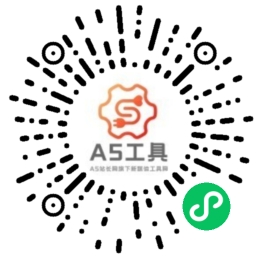语音克隆:数字世界的声音革命,还是伦理挑战的新篇章?
2025-06-24 10:40
**Voice Cloning: The Future of Sound in Our Digital World?**
In an era where technology is advancing at an unprecedented pace, the concept of voice cloning has moved from the realm of science fiction to a tangible reality. But what does this mean for our digital world, and more importantly, for us as individuals? As we delve into the intricacies of voice cloning, let's ask ourselves: Are we on the brink of a new communication revolution, or venturing into uncharted territories with unforeseen consequences?
Voice cloning involves the use of advanced algorithms and machine learning techniques to replicate the unique characteristics of an individual's voice. Imagine being able to create a digital replica of your voice that can read out emails, narrate audiobooks, or even engage in conversations – all without you having to utter a single word. Sounds like something out of a Hollywood blockbuster, doesn't it?
Yet, the technology behind voice cloning is anything but fictional. Recent studies have shown remarkable advancements in this field, with algorithms achieving astonishing levels of accuracy in mimicking human voices. For instance, one study revealed that voice clones generated using state-of-the-art techniques could fool listeners into believing they were hearing the real person in up to 95% of cases. These statistics are staggering and raise important questions about the authenticity and security of our digital interactions.
But let's not get ahead of ourselves. The potential applications of voice cloning are vast and varied. From personalized virtual assistants that sound exactly like you to enhancing accessibility for the speech-impaired, the technology holds promise for improving lives in numerous ways. Imagine a world where communication barriers are broken down, and everyone, regardless of their physical abilities, can express themselves freely.
However, with great power comes great responsibility. The ethical implications of voice cloning are numerous and complex. From privacy concerns to potential misuse in fraud and disinformation campaigns, the technology poses challenges that we must address head-on. As we march towards a future where voice cloning becomes more accessible, it's crucial that we establish robust regulations and ethical guidelines to ensure its responsible use.
Moreover, the human element cannot be overlooked. The unique timbre and inflections of our voices are integral to our identities. Voice cloning raises questions about individuality and authenticity in an increasingly digitalized world. Are we prepared to embrace a future where our voices, like our faces, can be replicated and manipulated at will?
In conclusion, voice cloning stands at the crossroads of innovation and ethics. As we explore its possibilities, let's engage in open and honest discussions about its implications. Only by doing so can we ensure that this groundbreaking technology serves to enhance, rather than diminish, the human experience. So, are you ready to welcome the age of voice cloning? The future of sound, after all, is in our hands – or rather, in our digital replicas' voices.
In an era where technology is advancing at an unprecedented pace, the concept of voice cloning has moved from the realm of science fiction to a tangible reality. But what does this mean for our digital world, and more importantly, for us as individuals? As we delve into the intricacies of voice cloning, let's ask ourselves: Are we on the brink of a new communication revolution, or venturing into uncharted territories with unforeseen consequences?
Voice cloning involves the use of advanced algorithms and machine learning techniques to replicate the unique characteristics of an individual's voice. Imagine being able to create a digital replica of your voice that can read out emails, narrate audiobooks, or even engage in conversations – all without you having to utter a single word. Sounds like something out of a Hollywood blockbuster, doesn't it?
Yet, the technology behind voice cloning is anything but fictional. Recent studies have shown remarkable advancements in this field, with algorithms achieving astonishing levels of accuracy in mimicking human voices. For instance, one study revealed that voice clones generated using state-of-the-art techniques could fool listeners into believing they were hearing the real person in up to 95% of cases. These statistics are staggering and raise important questions about the authenticity and security of our digital interactions.
But let's not get ahead of ourselves. The potential applications of voice cloning are vast and varied. From personalized virtual assistants that sound exactly like you to enhancing accessibility for the speech-impaired, the technology holds promise for improving lives in numerous ways. Imagine a world where communication barriers are broken down, and everyone, regardless of their physical abilities, can express themselves freely.
However, with great power comes great responsibility. The ethical implications of voice cloning are numerous and complex. From privacy concerns to potential misuse in fraud and disinformation campaigns, the technology poses challenges that we must address head-on. As we march towards a future where voice cloning becomes more accessible, it's crucial that we establish robust regulations and ethical guidelines to ensure its responsible use.
Moreover, the human element cannot be overlooked. The unique timbre and inflections of our voices are integral to our identities. Voice cloning raises questions about individuality and authenticity in an increasingly digitalized world. Are we prepared to embrace a future where our voices, like our faces, can be replicated and manipulated at will?
In conclusion, voice cloning stands at the crossroads of innovation and ethics. As we explore its possibilities, let's engage in open and honest discussions about its implications. Only by doing so can we ensure that this groundbreaking technology serves to enhance, rather than diminish, the human experience. So, are you ready to welcome the age of voice cloning? The future of sound, after all, is in our hands – or rather, in our digital replicas' voices.
这篇关于《语音克隆:数字世界的声音革命,还是伦理挑战的新篇章?》的文章就介绍到这了,更多新媒体运营相关内容请浏览A5工具以前的文章或继续浏览下面的相关文章,望大家以后多多支持A5工具 - 全媒体工具网!
相关资讯
查看更多
快音AI写歌:探索声音克隆边界,音乐创作新革命?
**快音AI写歌:能否克隆声音的创意探索?**
在数字化时代,人工智能(AI)正以前所未有的速度重塑我们的世界。从自动驾驶汽车到智能家居,AI技术已深入到我们生活的方方面面。而在音乐创作领域,快音A...

克隆人声软件免费来袭,声音革命开启,你准备好拥抱了吗?
**克隆人声,免费软件来袭,你准备好迎接声音革命了吗?**
在这个日新月异的数字时代,技术的每一次飞跃都在重新定义我们的生活方式。想象一下,只需轻轻一点,就能拥有与偶像如出一辙的声音,或是让逝去亲人...

克隆人声音:开启沟通新纪元,是奇迹还是挑战?
**克隆人声音:未来沟通的全新维度**
在科技日新月异的今天,我们不断见证着人类智慧的奇迹。当“克隆人声音”这一概念跃入公众视野时,你是否曾驻足思考,这究竟是一场声音的复制盛宴,还是开启未来沟通新时...

AI声音克隆:音乐界新星背后的“歌声”,竟是算法在“献唱”?
**AI声音克隆:揭秘歌坛新星的“幕后歌手”**
在这个科技日新月异的时代,音乐界也迎来了一场前所未有的变革。你是否曾好奇,那些在网络上爆红的歌曲,其背后是否隐藏着一位神秘的“幕后歌手”?没错,我说...

声音视频克隆软件:开启音频创作新时代,让声音随心所欲!
**探索声音视频克隆软件:解锁音频创作新纪元**
在数字化浪潮席卷全球的今天,声音视频克隆技术如同一股清流,悄然改变着音频创作的面貌。你是否曾幻想过拥有明星般的嗓音,或是让自己的声音穿越时空,与过去...

克隆声音读有声书:个性化阅读新时代,你的声音讲你的故事!
**克隆自己的声音:未来有声书阅读的革命性飞跃?**
在这个科技日新月异的时代,你是否曾幻想过拥有一种神奇的能力,让自己的声音在忙碌时也能持续讲述那些动人的故事?如今,这一看似科幻的场景正逐步成为现...

三秒钟克隆声音:技术飞跃,你准备好迎接声音领域的革命了吗?
**三秒钟,克隆声音:未来已至,你准备好了吗?**
在这个瞬息万变的时代,技术的每一次飞跃都在重新定义着我们的认知边界。想象一下,只需短短三秒钟,便能精准克隆一个人的声音——这听起来像是科幻电影中的...

克隆人声软件兴起,未来之声:便捷与风险并存的新科技
**探索未来之声:揭秘克隆人声音的软件**
在科技日新月异的今天,你是否曾幻想过让自己的声音穿越时空,或是让逝去亲人的声音得以永恒?随着人工智能技术的飞速发展,这一梦想正逐步变为现实。克隆人声音的软...





